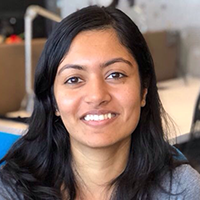Farese’s work holds
‘tremendous promise’
Robert V. Farese Jr., professor of genetics and complex diseases at the Harvard T.H. Chan School of Public Health, has won the Avanti Award in Lipids from the American Society for Biochemistry and Molecular Biology for his seminal contributions to the understanding of neutral lipid metabolism and its relevance to homeostatic mechanisms in health and disease.

The Avanti Award recognizes outstanding research contributions in the area of lipids.
Tobias C. Walther, who runs a joint laboratory with Farese at the Harvard School of Public Health, says, “It is hard to overemphasize the truly groundbreaking discoveries of Dr. Farese, their lasting impact on the fields of lipid and metabolism research, as well as on human health.”
Farese has made multifaceted contributions to the field of lipid research. One of his key contributions is the discovery of the DGAT enzymes, DGAT1 and DGAT2, which govern triglyceride synthesis and storage. (DGAT is short for diacylglycerol acyltransferase.) Using knockout and mutant transgenic mouse models, Farese demonstrated that DGAT1 knockout mice were resistant to the development of diet-induced obesity, diabetes and nonalcoholic fatty liver disease. This discovery led to the development of DGAT enzyme inhibition as a potential treatment strategy for these diseases. An interesting offshoot of this work is the potential utilization of these enzymes to increase oil production in biofuels.
Gökhan S. Hotamisligil at the Harvard T.H. Chan School of Public Health, who nominated Farese for the award, says, “Farese’s research has revealed fundamental biology of these diverse enzymes, and by doing so, his work has shown tremendous promise for creating therapeutic targets to treat and cure common, chronic diseases.”
Farese was also instrumental in discovering other lipid synthesis enzymes, such as ACAT2 and MGAT enzymes, and elucidating their physiological role. His unique ability to transcend domains of science led to his pioneering contributions to the cell biology of lipid droplets. Lipid droplets are cytosolic organelles that contain the neutral lipids essential for energy and membrane synthesis. In collaboration with Walther, he identified a set of 227 proteins governing the number, size and cellular localization of lipid droplets. They discovered two classes of lipid droplets: smaller initial lipid droplets and larger expanding lipid droplets. Additionally, their key findings show that the formation of lipid droplets depend on the Arf1/COP-1 vesicular trafficking machinery and that the CTP: phosphocholine cytidyltransferase — the rate-limiting enzyme for phosphocholine, or PC, biosynthesis — regulates PC biosynthesis at the surface of lipid droplets.
One of Farese’s recent interests is the role of lipids and lipid biology in neurodegeneration, particularly frontotemporal dementia. He is the co-founder of the Consortium for Frontotemporal Dementia Research, a cross-institutional initiative aimed at discovering the underlying mechanisms of this rare disease and identifying treatment strategies.
In his letter of support for Farese's nomination for the award, Rudolf Zechner at the Institute of Biomedical Sciences in Graz, Austria, says of Farese: “What impresses me most is the quality of his science and the vigorous way he approaches the important questions in lipid research.”
Farese received his medical degree from the Vanderbilt University Medical School and did a residency at the University of Colorado Affiliated Hospitals. He pursued his postdoctoral training at the Gladstone Institute of Cardiovascular Disease.
Watch Farese’s award lecture, “Cellular energy metabolism: mechanisms of fat synthesis and storage,” below.
Enjoy reading ASBMB Today?
Become a member to receive the print edition four times a year and the digital edition monthly.
Learn moreGet the latest from ASBMB Today
Enter your email address, and we’ll send you a weekly email with recent articles, interviews and more.
Latest in People
People highlights or most popular articles

Sketching, scribbling and scicomm
Graduate student Ari Paiz describes how her love of science and art blend to make her an effective science communicator.

Embrace your neurodivergence and flourish in college
This guide offers practical advice on setting yourself up for success — learn how to leverage campus resources, work with professors and embrace your strengths.

Survival tools for a neurodivergent brain in academia
Working in academia is hard, and being neurodivergent makes it harder. Here are a few tools that may help, from a Ph.D. student with ADHD.

Quieting the static: Building inclusive STEM classrooms
Christin Monroe, an assistant professor of chemistry at Landmark College, offers practical tips to help educators make their classrooms more accessible to neurodivergent scientists.

Hidden strengths of an autistic scientist
Navigating the world of scientific research as an autistic scientist comes with unique challenges —microaggressions, communication hurdles and the constant pressure to conform to social norms, postbaccalaureate student Taylor Stolberg writes.

Richard Silverman to speak at ASBMB 2025
Richard Silverman and Melissa Moore are the featured speakers at the ASBMB annual meeting to be held April 12-15 in Chicago.

